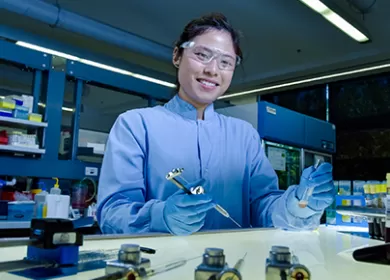Research Study Update: Findings from the Australian Blood Donor Study pilot
More than 90% of donors are willing to give us information to help with our research. They’re willing to respond to questionnaires, allow us to link to other personal data, as well as do genomic testing of extra blood samples.
What was the question?
We need to make sure that donors are happy to help with a large, long-term study before we can begin one. This survey is in preparation for the Australian Blood Donor Study (ABDS). We’d like to track the health and donation habits of Australian blood donors over time.
We asked donors if they’d be happy to share their information with us, and tested a number of ways to get them involved.
Why is it important?
A large study like the ABDS would be an important research tool not just for Lifeblood, but for other researchers in Australia. In the long term, it would improve our understanding of donor health, behaviour and engagement, and help us to keep donors happy and healthy.
What did we do?
We did a survey with 2,017 donors in 2020, using 4 different recruitment strategies:
- Strategy 1 Postal Invite: Donors received an invitation in the mail, with a paper copy of the survey to complete.
- Strategy 2 Letter and email Invite: Donors received both a postal invite and an email invite to visit the research webpage to complete the survey.
- Strategy 3 Email invite: Donors received an email with a link to the survey.
- Strategy 4 Incentre recruitment: Staff spoke to donors at three donor centres across Australia and asked them to complete the survey on a tablet in refreshments after their donation.
We analysed the answers to the questions, and also looked at how many donors did not answer specific questions.
What did we find out?
Donors who were approached in a donor centre were more likely to complete the survey with an overall response rate of 76%, with the lowest response being for those who only received an email invite (24%).
Donors who told us they weren’t willing to have genetic testing or allow data linkage most often cited privacy concerns as their main reason.
What are the next steps?
We’re developing the next stage of the study using the results and information we collected from this survey.
In the next stage, we’ll recruit thousands of whole blood donors in donor centres across Australia. We’ll ask them to provide a blood sample and complete the health survey, which will also be used in other Lifeblood approved research studies.
If you’d like more information about this study, please contact Surendra Karki.
We’d like to thank the Brand team for all their help creating the materials, donor centre staff for recruiting the donors in Strategy 4, and all the donors for completing this survey and providing helpful feedback.

